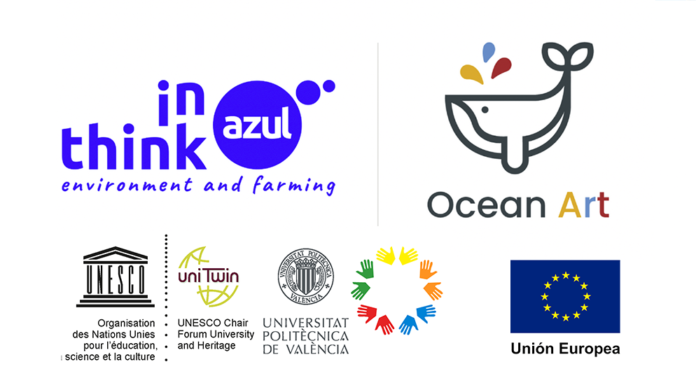Trece proyectos de I+D+i y 2,4 millones de euros de financiación. Estas cifras constatan el liderazgo de la Universitat Politècnica de València (UPV) en el programa de I+D+i de Ciencias Marinas ThinkINazul, enmarcado dentro los denominados planes complementarios de I+D+i impulsados por el Ministerio de Ciencia e Innovación con el objetivo principal de fomentar la colaboración en investigación entre las comunidades autónomas en líneas de investigación prioritarias para el país.
Entre los proyectos liderados por la UPV dentro de este programa se encuentra el OCEAN ART PROJECT, dirigido por la investigadora del IRP Victoria Vivancos Ramón desde la Cátedra UNESCO: Forum Universidad y Patrimonio.
El programa global de Ciencias Marinas ha sido financiado con un total de 50 millones de euros que, en el caso de la Comunitat Valenciana asciende a 10 millones, de los que son seis financiados por el Ministerio y cuatro por la Conselleria de Innovación, Universidades, Ciencia y Sociedad Digital. En este programa participan cinco comunidades autónomas: Andalucía, Cantabria, Comunitat Valenciana, Galicia y Región de Murcia.
En la Comunitat Valenciana, de un total de treinta y nueve proyectos -expresiones de Interés- aprobados por la Generalitat en este Plan, trece corresponden a la Universitat Politècnica, siendo la entidad que mayor financiación ha obtenido, con 2,4 millones de euros para desarrollar investigaciones en las líneas de actuación de “Observación y monitorización del medio marino y litoral”, “Acuicultura sostenible, inteligente y de precisión” y “Economía Azul: Innovaciones y oportunidades”.
Hasta 2025
Los proyectos ThinkINazul-GVA han comenzado ya y se extenderán hasta el 2025, y abarcan múltiples líneas: desde la monitorización acústica para una acuicultura de precisión, el estudio del efecto del cambio climático sobre la fisiología espermática de especies de la acuicultura mediterránea o la optimización de la producción del camarón en biofloc con piensos ecológicos, hasta la integración de la tecnología digital y el Deep learning para una pesca ya acuicultura inteligentes, el desarrollo de nuevos productos de alto valor añadido en especies acuícolas o el estudio reproductivo y genético de tellina y chirla.
Otras áreas de trabajo se centrarán en la monitorización morfosedimentaria de las playas valencianas, las redes de sensores y big data para la observación del medio marino, la eliminación de contaminantes emergentes y metales pesados mediante electrofiltración, la mejora de la sostenibilidad y seguridad alimentaria para la producción de alimentos marinos, y el “mediterranean-fish-chip”. Además, ThinkINAzul GVA abordará también el relevo generacional en el sector pesquero valenciano.
Presentación oficial del proyecto
La presentación oficial del programa ThinkINAzul-GVA tuvo lugar a finales del pasado mes de junio en el Instituto de Acuicultura de Torre de la Sal (IATS-CSIC), en un acto que reunió a alrededor de 100 personas, entre investigadores participantes en el plan -entre ellos, los coordinadores de los proyectos UPV aprobados en el plan- y empresas del sector.
El acto estuvo presidido por la secretaria autonómica de Universidades e Investigación, Carmen Beviá, acompañada por la directora del IATS-CSIC, Ariadna Sitjà; el director general de Ciencia e Investigación, Ángel Carbonell; el director de la AVAP, Javier Oliver, así como de los coordinadores del ThinkINAzul valenciano, Jaume Pérez Sánchez, profesor investigador del IATS-CSIC, y Carlos Valle, profesor de la Universidad de Alicante.










